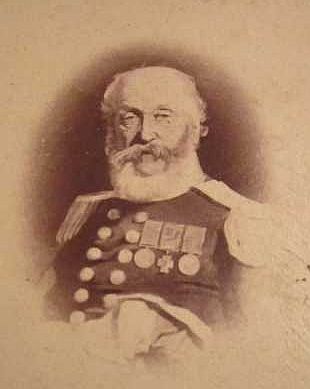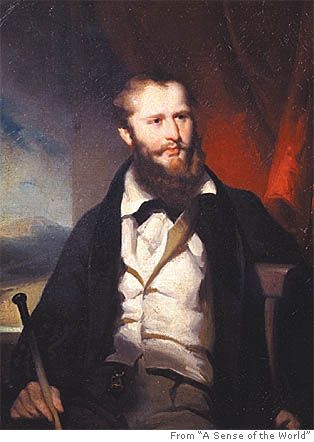The Holman Family
In about 1803 a new doctor and his family arrived in Crediton.
The Holmans had come from North Tawton, about 10 miles away to the west.
Henry Holman was born in Milverton, Somerset in about 1760, the son of Andrew Holman, also a surgeon and apothecary. Henry had moved to North Tawton when he was about 26 and had been living at “Stoats” with his wife (Edith née Holloway) and their seven children. In May 1794, he entered into a bastardy bond of £300, indemnifying North Tawton Parish against the costs of maintenance of Jane Cross’s child. "Jane Cross, spinster, great with child" soon had a baby, William, who was baptised in North Tawton on 28 September 1794.
In 1795 he took on 16 years old Richard Hutchens from Bridgwater as an apprentice. (Richard Hutchens married Susannah Cole of Lapford in 1800, became a "surgeon" but died in Crediton in 1803.)
In Credititon Holman was an ensign and later a lieutenant in Captain Buller’s Volunteer Infantry.
After his wife Edith died in 1806, Henry returned to Milverton where the following year he married Deborah Camplin, the daughter of the Archdeacon of Taunton, and sister of his brother Charles’s wife.
He died in Milverton in 1817, aged 57.
Henry Holman's children:
His eldest son William Henry Holman (1789-1824) also worked as a surgeon in Crediton. He married his cousin Sarah Elizabeth Holman. Their son Charles Henry Holman was later a surgeon on the Isle of Wight. William Holman died in Crediton aged 35.
Another son, Thomas Holloway Holman MD (1791 -1866), served in the Royal Navy and later became a commander of the coastguard service. In 1819 he married Elizabeth, daughter of Rev John Rudall, who was for 43 years Vicar of Crediton. Thomas Holman’s son, Rev William Henry Holman, born in Crediton (1826-1901) was a Naval Chaplain, who in 1852-3 was the clergyman on Pitcairn Island. (One of Fletcher Christian's greatgrandsons, born in 1853, was named William Henry Holman Christian, and baptised by Rev Holman.) Another of Thomas's sons, John Rudall Holman, was a naval surgeon who at the time of his death aged 59 in 1883 was Deputy Inspector General of Hospitals and Fleets of the Royal Navy.
Henry's third son, Captain Charles Holman (1793-1866) served in the 52nd Regiment of Foot and fought at Waterloo. He then joined the 1st Devon Regiment of Militia and married Elizabeth Pidsley of Great Wotton, Colebrooke in 1822; their daughter Mary married Crediton solicitor William Cornish Cleave. In 1831 he was appointed Deputy Lieutenant of Devon. He became paymaster of his Regiment in 1855. Captain Holman was buried in Crediton.

Son Andrew Holman (1795-1883) was a surgeon in Aldgate, London for most of his life, and his son, William Henry Holman (1823-1890), was likewise a surgeon in London and the South-east.
John Holman married Matilda, daughter of Rev George Burgess, Rector of Atherington in North Devon. The couple emigrated to South Africa.
The youngest son was destined to be a doctor from birth. Herman Boerhaave Holman (1801-1863), was named after an eminent Dutch physician. He too practised in Crediton for almost all his life. Both of his sons were medically qualified.
Of Henry Holman’s three brothers, the eldest, John (1746-1828), was a druggist in Exeter. Together with his son-in-law (and former apprentice) James Ham, John Holman founded the firm of Holman Ham & Co, which had several chemist shops located in Devon until a few years ago.
One of John Holman’s sons, James, born in Exeter (1786-1857) lost his sight whilst in the Navy. He later became a Knight of Windsor and was the celebrated “Blind Traveller”, who ventured far into Siberia as well as South America, South Africa and Australia. His books about his foreign travel became best sellers.

Lieut James Holman KW FRS RN
Another brother Charles, (born in Milverton in 1755), was a surgeon there until his death aged 55 in 1810:
“While taking some refreshment at the house of one of his patients, a greyhound entered the room, to which the deceased offered a piece of bread; in taking it, the animal snapped at what was offered him so eagerly, that his teeth violently pressed the deceased's fingers, but did not penetrate them. Inflammation shortly after ensued, to which a mortification succeeded, and terminated in his death.”
A few years before Henry Holman’s family moved out of North Tawton, a young doctor named Samuel Budd set up practice in that town, and was also appointed as medical officer to the poor of Bow. He married Catherine Wreford of Bow in 1801. Six of their ten children became doctors.
The story of the Budds is well chronicled. Although of humbler descent, the Holmans were arguably as influential a medical family in the Southwest of England in the nineteenth century.
